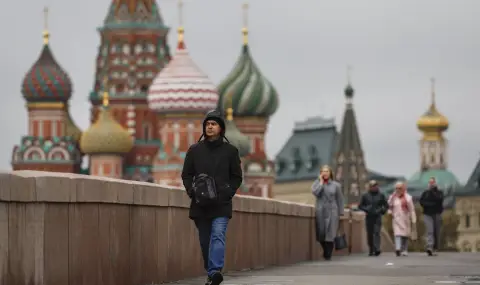Why are Russians so susceptible to Kremlin propaganda, but show little interest in alternative information? How is this explained? The head of the renowned sociological Center “Levada“ Lev Gudkov answers DW's questions:
Is it possible under the conditions of a totalitarian regime to get a realistic idea of the mood of the people in Russia?
"Social surveys can still be conducted in Russia for now. There are no problems, except for pressure from the authorities against organizations conducting surveys. The difficulties are of a financial nature – The pressure on independent sociological centers and their declaration as “foreign agents“ led to a rift with their previous partners, including banks. This limits the possibilities of research in financial terms, but people are the same – they have not changed much since Soviet times“, says Lev Gudkov, scientific director of the sociological agency “Levada“ Center.
But how much can the results of the polls be trusted? One of them, for example, testifies that 72% of Russians approve of the annexation of four regions in Ukraine, while only 9% are critical of this act. What does this say?
L. Gudkov: It says that propaganda has strengthened imperial ideas and they are alive – not from today, but for a long time. For example, when we ask whether you would support if Putin announced a cessation of hostilities, 65% answer positively. But if we ask about the conditions - do you support the return of these areas to Ukraine and the payment of compensation, 70% answer negatively. This is the reality of mass consciousness.
Most people say that the hostilities in Ukraine should end and peace talks should begin. But when we ask - what should be discussed at these talks, we are told: Ukraine should recognize its surrender, Russia should keep the occupied territories, the so-called "denazification" should be carried out and the Ukrainian leadership should be replaced, Ukraine should renounce membership in NATO and the EU. Only 10% of the population feels a sense of shame and responsibility for the war.
And how do you explain the fact that the share of people supporting the war is still much lower than the share of Putin's devotees, which is 77 percent?
L. Gudkov: Putin's support used to reach 87 percent, now it has dropped to 80 percent. Putin, first of all, symbolizes the greatness of the state. In addition, people believe that he guarantees Russia's security, protects it from the hostile West, that he is aware of things, takes care of the economy and the population. This demagogy is reproduced and accepted by the population.
But it does not follow from this that there is a lack of understanding of the corruption of the regime, or even of Putin's involvement in corruption. Many people are sure that he is corrupt, or rather, that he allows corruption - which answers are much more common. In short - the tsar is good, the courtiers are bad.
Is that why trust in the government is lower than in the president?
L. Gudkov: Yes. The assessments of the government have always been negative, they did not trust it, they thought that it was not coping with its tasks. Today, the whole wave of ideological mobilization has led to an increase in the authority of the government, the State Duma, the Federation Council, not to mention the FSB and the army in the eyes of the people.
However, do you think that people answer your questions honestly?
L. Gudkov: It is not about honesty - they have no other explanation for what is happening. In order for there to be other versions and other interpretations, there must be civil society, pluralism of opinions, freedom of the media. That is, there is a need for different information sources and different explanations of what is happening. People can have their own opinion about prices - they are growing and no propaganda can convince them otherwise. But what could they say about the CIA's plans regarding Russia? Only what propaganda offers them.
But the majority of Russians have the opportunity to get alternative information on the Internet. Why doesn't that work?
L. Gudkov: Because there is a need to preserve collective identity. This is something very important, which also applies to our opposition. The opposition constantly criticizes the authorities and accuses them of corruption. This is a fact, but this is trivial knowledge and no one would argue with this issue. And unlike the opposition, the authorities talk about values, about dignity, about a sense of self-respect, even if it is false and based on myths and demagogy. People like this because it elevates them in their own eyes. Oppressed, dependent and humiliated people have a particularly great need for some positive. The authorities give them this opportunity.
As for the use of alternative sources of information, people can think differently when they are at home, curse Putin and the war. But what is important is how they behave in the public space, where a completely different logic, a different rationality, other norms of behavior operate. It is not out of fear – there is a functional need for collective self-respect, which the opposition does not give them. And there is something else when we talk about alternative data: “You can lead a horse to water, but you can't make it drink“.
Author: Nikita Zholkver
